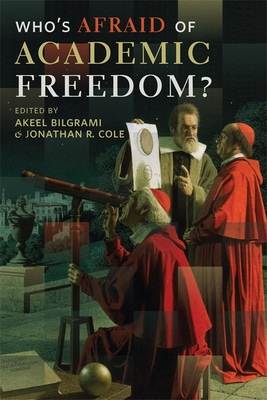
Who's Afraid of Academic Freedom?
- اطلاعات
- نقد و بررسی
- دیدگاه کاربران
نقد و بررسی

November 15, 2014
Scholars consider threats to free inquiry.Editors Bilgrami (Philosophy/Columbia Univ.; Secularism, Identity, and Enchantment, 2013, etc.) and Cole (Mason Professor of the University/Columbia Univ.; The Great American University, 2010, etc.) bring together eminent scholars-Stanley Fish, Noam Chomsky and Judith Butler, among them-to analyze the vexing and controversial issue of academic freedom. The concept began in the late 19th century, when American colleges no longer aimed to train men for the ministry but rather to become critical thinkers. "To criticize and augment, as well as to preserve the tradition, became an accepted function...," write the editors. "This was an extraordinary departure for a system that previously had aimed primarily at cultural conservation." Coincident with internal changes was new funding: private support by prominent businessmen, who assumed they could influence curriculum and hiring. Princeton professor Joan Scott notes that the doctrine of academic freedom was codified in 1915 by the American Association of University Professors to ensure faculty autonomy in newly established research universities. The AAUP held that teaching, research and publications should be evaluated only by professional scholars with relevant expertise. That stipulation still engenders debate, as government funding and Institutional Review Boards weigh in on research parameters. Like other contributors, Columbia philosophy professor Michele Moody-Adams sees the university as a refuge where intellectual diversity, however unsettling to donors, colleagues or even students, must be preserved. Several contributors consider whether academic freedom is guaranteed by the First Amendment or whether it has a special legal status. A final, eye-opening essay summarizes a study conducted at Columbia in which 1,610 faculty members were asked to evaluate 14 vignettes suggesting challenges to academic freedom: research curtailed by IRBs, for example, or faculty making politically unpopular remarks in class. The results showed wide disagreement about what free inquiry means and what academic freedom protects. Cogent essays about a topic crucial to the university and to all discourse in a democracy.
COPYRIGHT(2014) Kirkus Reviews, ALL RIGHTS RESERVED.




دیدگاه کاربران